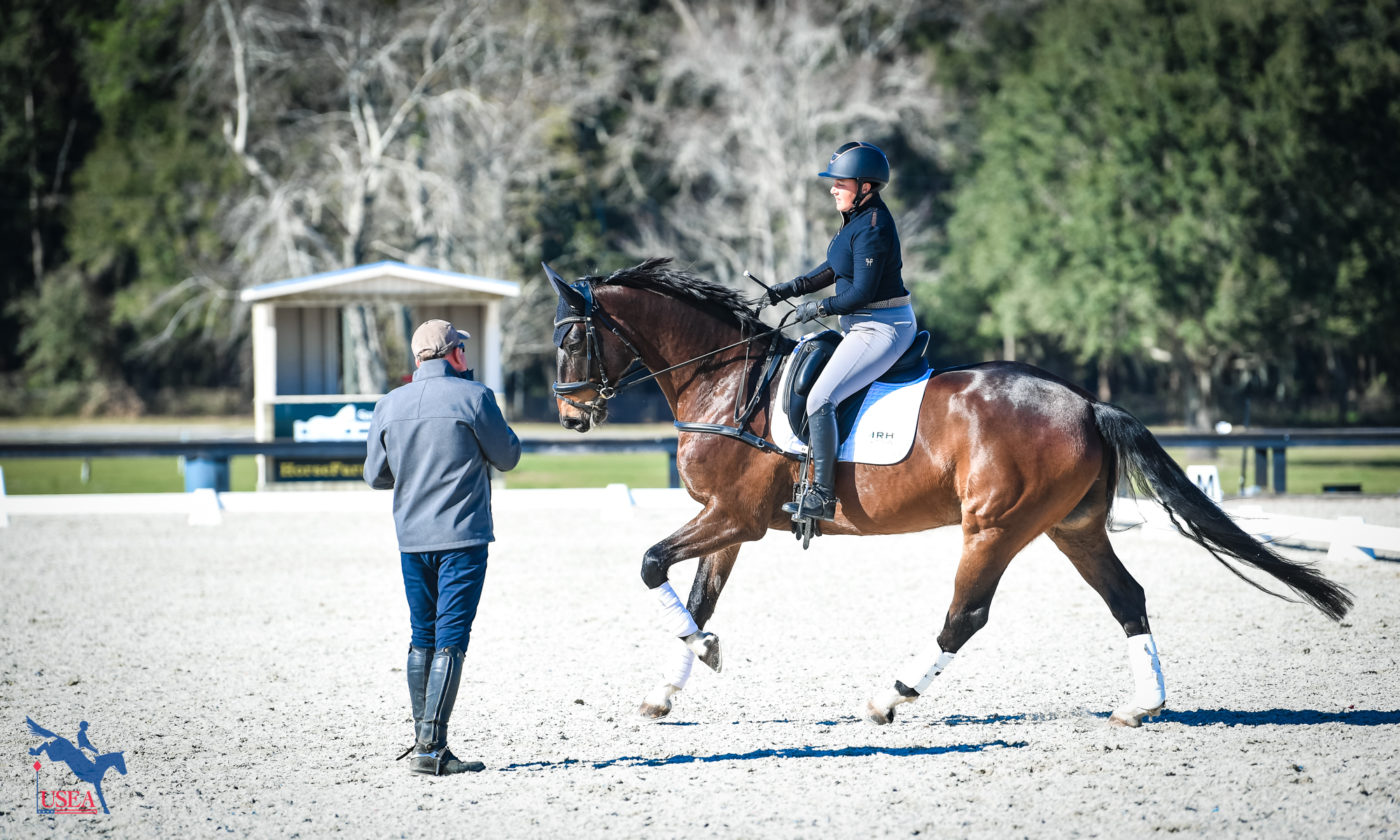

The following is provided through a partnership between STRIDER and the USEA. As part of our commitment to diversity, enabling access, and building capacity throughout the industry we are pleased to provide this content to benefit the sport of eventing.
There are a number of motivations for seeking out a new instructor to meet your eventing goals. Whether you are just learning the sport, seeking some additional help in a particular phase, relocating, or you’ve just parted ways with your longtime teacher, connecting with a new coach can feel like a daunting task.
While seeking out a new instructor is highly personal, the team at STRIDER has compiled a few considerations that may help you navigate the next steps to get you and your horse on track to achieve your training and competition goals.
Step 1: It Starts with You
Have an understanding of your own learning style and a clear grasp on what your short- and long-term goals are. When seeking out new instruction it can be helpful for your new coach to know these things and be able to tell you whether or not they can help you on a path to achieve your goals.
Remember to also communicate clearly with your current instructor if you are seeking additional or new help elsewhere. Best case scenario: he or she may be able to point you in the right direction, and if not you’ve at least done the right thing in terms of being upfront about your needs.
Step 2: Evaluate Credentials & Experience
The key word here is evaluate. Keep your goals in mind and take a look at your potential coaches’ competition experience, certification(s), and see what their students are up to!
USEA’s Directory of ECP Certified Eventing Coaches can be a fantastic resource. Organized by USEA Area and featuring contact information as well as certification level, it’s a great tool to leverage.
Step 3: Do Your Research
Find out if any of your acquaintances have taken a lesson from the person you’re interested in riding with (or know anyone who currently rides with that person!). Do a little digging on your new potential instructor's website and social media channels to get a sense for what they’re like.
Taking a close look at someone’s online footprint can also give you some clues about their communication style—is the information you're looking for easy to find on their website? Does their social media use language that you like the sound of? Are there recent competition updates and photos?
Step 4: Observe
If it’s feasible—and something that will help your decision-making process—watch a lesson. See if you can get a sense for the coach’s emphasis on safety and horsemanship skills, communication style, lesson structure, and overall conduct.
Step 5: Try it Out
Remember that you are the best advocate for yourself and your horse. You can always try out a lesson (or a bunch!) with a new instructor before making any sort of commitment. Unlike some gym memberships or cell phone contracts, you’re very rarely getting locked into anything when you decide to ride with someone new. The beauty there is that you can also go in a different direction at any time.
Ensuring an instructor is the right fit for your riding goals, learning style, and personality can take a bit of work, but it’s worth the time and effort to enhance your partnership with your horse. However you define success, remember that your love of the horse motivated you first. We hope these steps help you to carefully evaluate and select an instructor who can set you up for a rewarding experience.
STRIDER is the leading entry platform across disciplines for the equestrian industry.
From enabling riders to discover and book the perfect opportunity to helping equestrians across the industry grow and run their businesses, STRIDER fosters connections to top-tier experiences. Please visit www.striderpro.com to learn more about the suite of software products and services available.
Connect with STRIDER on Facebook, Instagram, or LinkedIn.
The Defender U.S. Eventing Team secured a well-earned podium finish in the FEI Eventing Nations Cup CCIO4*-S hosted in Bicton, Great Britain. The team completed the weekend on a team total of 132.9, with Jenny Caras and Sommersby finishing as the highest placed U.S. combination individually in 10th on a 39.4.
The Woodside Spring Horse Trials highlighted accomplishments across a range of experiences for event horses and riders.
This year, Winona Horse Trials in Hanoverton, Ohio, celebrated their 40th year at their spring USEA-recognized event, held May 3-4.
The United States Eventing Association (USEA) is pleased to announce the continued partnership with Canter Culture for the 2025 competition season.